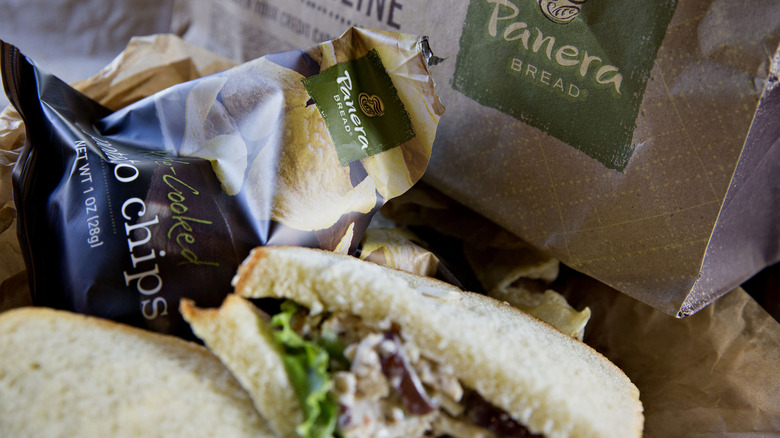Panera Is Going To Be The Next Restaurant In The Metaverse
About a year ago, NFTs took the food industry by storm. The metaverse seems to be this year's tech trend over which brands will increasingly obsess. On February 3, Panera Bread filed a trademark application for "Paneraverse." The first trademark covers downloadable virtual goods, which include virtual food products and NFTs for financial transactions, and the second deals with the Paneraverse, a virtual cafe or restaurant environments made for entertainment purposes.
Later, Josh Gerben, a trademark attorney, shared on Twitter that the next day McDonald's filed 10 trademark applications covering all the same bases of virtual products, virtual venues, and tokens for virtual transactions. It also went further with an idea of using virtual transactions to facilitate the delivery of McDonald's meals, as opposed to using an app to order delivery.
With such names expressing interest in the metaverse, it was not long before other brands began to experience FMOMO. By the end of March, Yum! Brands ensured KFC, Pizza Hut, and Taco Bell all had made trademark applications for their presence in the metaverse. Most recently, Wendy's debuted a Wendyverse on April 2. What this means, as explained in a press release, is that it took Meta's VR platform Horizon Worlds to develop a Wendy's restaurant that people with an Oculus Quest 2 headset can wander about in. We can expect Panera Bread and McDonald's to experiment in a similar manner in the coming months.
There's another reason for these virtual trademarks
Of course, the trademarks set the basis for companies like McDonald's, Panera Bread, and KFC to develop virtual versions of their restaurants. However, the fully realized dreams of virtual dining in the metaverse is a still far off prospect. The more pressing reason for these trademark applications, then, is to head off any attempts to recreate their brands in the virtual space.
In an interview with Michael Kondoudis, an attorney who works with trademarks related to the metaverse and the like, Nation's Restaurant News learned that both legally and physically, code is different than the actual product. Using the example of Nike, Kondoudis asked what the company could do if someone developed an avatar that wears Nikes. Does that infringe upon pre-existing copyright? "They realized that the most cost-effective way to fill this gap in their protection was to file trademark applications," he concluded. Or, as he is quoted by ExpertClick, "These new trademarks also provide Panera extra protection in the event others attempt to use the brand online in an unlicensed way."
By owning the virtual presence of its brand, Panera Bread can also effectively advertise cross platforms without their information being muddied by anyone who happens to make their own Panera presence. When the trademarks were first filed, George Hanson, Panera's chief digital officer, told Nation's Restaurant News, "Panera is always working to be at the forefront of tech advancement." That involves using the advancements for advertisements.

